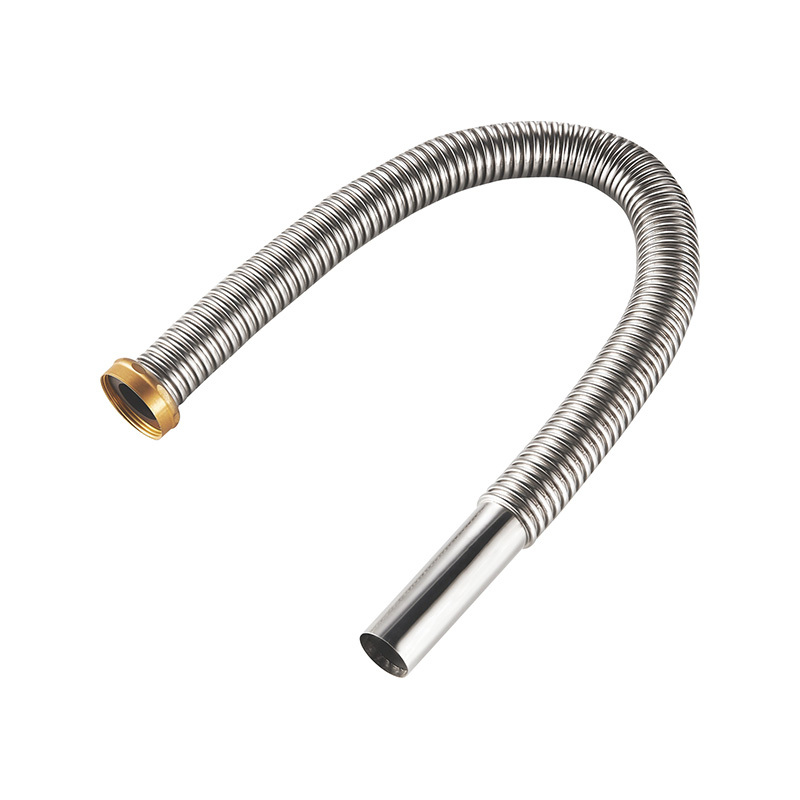News
08
2025
-
06
Exploring the Benefits of Stainless Steel Metal Hoses in Industrial Applications
Exploring the Benefits of Stainless Steel Metal Hoses in Industrial Applications
Introduction to Stainless Steel Metal Hoses
In the realm of industrial applications, the choice of materials is pivotal for ensuring efficiency, safety, and longevity. Among these materials, **stainless steel metal hoses** stand out due to their remarkable properties. These hoses are not only designed to withstand extreme conditions but also to deliver superior performance across various industries. From food processing to petrochemical applications, stainless steel hoses offer unparalleled advantages.
Understanding Stainless Steel Metal Hoses
**Stainless steel metal hoses** are flexible tubes made from various stainless steel alloys. The unique design allows for flexibility and movement, while the material itself offers excellent resistance to corrosion and high temperatures. Typically, these hoses consist of one or more layers of stainless steel, which are often reinforced by additional materials for enhanced durability.
Key Characteristics of Stainless Steel Metal Hoses
1. **Corrosion Resistance**: Stainless steel is known for its ability to resist rust and corrosion, making it ideal for applications involving harsh chemicals or moisture.
2. **High-Temperature Tolerance**: These hoses can operate effectively in high-temperature environments, ensuring the integrity of the material remains intact.
3. **Flexibility and Durability**: The inherent flexibility of stainless steel allows for easy installation and maneuverability in tight spaces, while its toughness ensures a long operational life.
4. **Smooth Interior Surface**: The smooth finish reduces turbulence and pressure drops, contributing to efficient fluid transfer.
The Advantages of Using Stainless Steel Metal Hoses in Industrial Applications
The choice to utilize stainless steel metal hoses in various sectors is often driven by their numerous benefits. Below are some of the most compelling reasons to consider these versatile hoses for industrial applications.
1. Enhanced Durability and Longevity
One of the primary benefits of stainless steel metal hoses is their **exceptional durability**. Unlike rubber or plastic hoses that may degrade over time, stainless steel hoses are designed to withstand the rigors of demanding environments. This results in **lower maintenance costs** and a reduced need for frequent replacements, ultimately saving businesses both time and money.
2. Superior Corrosion Resistance
In industries such as chemical processing or food production, exposure to corrosive substances is a common challenge. Stainless steel metal hoses are engineered to resist corrosion, ensuring that they remain functional and safe even when subjected to harsh chemicals. This property is crucial for maintaining the **integrity of the fluid being transported** and ensuring compliance with industry regulations.
3. Flexibility for Various Applications
Stainless steel hoses are incredibly flexible, making them suitable for a wide range of applications. Whether you require a hose that can bend around tight corners or one that can accommodate thermal expansion, stainless steel metal hoses can meet these demands. This flexibility proves advantageous in mechanical systems where space is at a premium.
4. High-Temperature Resistance
In industries such as oil and gas, where high temperatures are the norm, stainless steel metal hoses excel. They can withstand extreme thermal conditions without compromising their structural integrity. This ability to function effectively under high temperatures ensures that processes remain uninterrupted, which is vital for operational efficiency.
5. Easy Maintenance and Cleaning
The smooth interior surface of stainless steel hoses allows for easy cleaning and maintenance. In the food industry, for example, hygiene is of utmost importance. Stainless steel hoses can be thoroughly cleaned to prevent contamination, making them the ideal choice for transporting food and beverage products.
Common Applications of Stainless Steel Metal Hoses
Stainless steel metal hoses are used across various industries due to their versatility. Here are some common applications where these hoses excel:
1. Chemical Processing
In chemical processing plants, the transport of corrosive substances is a daily task. Stainless steel metal hoses provide a reliable solution for moving these chemicals safely, ensuring that there is no risk of leaks or contamination.
2. Food and Beverage Industry
Hygiene is critical in the food and beverage industry. Stainless steel hoses are frequently used for transporting liquids and gases, ensuring that the products remain uncontaminated while adhering to health regulations.
3. Oil and Gas Sector
The oil and gas industry often involves high pressures and temperatures. Stainless steel metal hoses are used in drilling, extraction, and processing applications, providing reliable performance under challenging conditions.
4. Pharmaceutical Manufacturing
In pharmaceutical manufacturing, the purity of the ingredients is crucial. Stainless steel hoses are ideal for transporting sensitive materials, as they do not leach harmful substances into the fluids.
5. HVAC Systems
Heating, ventilation, and air conditioning (HVAC) systems require hoses that can withstand various temperatures and pressures. Stainless steel metal hoses are often utilized in these systems for their durability and reliability.
How to Choose the Right Stainless Steel Metal Hose
Selecting the appropriate stainless steel metal hose for your industrial application involves several considerations. Here are some key factors to keep in mind:
1. Size and Dimensions
Ensure that the hose’s diameter and length meet the requirements of your application. A proper fit is crucial for maintaining flow rates and pressure levels.
2. Type of Stainless Steel
Different grades of stainless steel offer varying levels of corrosion resistance and strength. For instance, **316 stainless steel** is often recommended for more corrosive environments, while **304 stainless steel** may suffice for less demanding applications.
3. Pressure Ratings
Understanding the pressure requirements of your application is essential. Choose hoses that can withstand the necessary pressure without compromising safety or performance.
4. Temperature Tolerance
Consider the temperature range your hose will encounter. Ensure that the specified hose can function effectively within that range.
5. Application-Specific Features
Some applications may require specific features such as braided reinforcement or specific end fittings. Evaluate whether your application has unique needs that must be addressed when selecting a hose.
Maintenance Tips for Stainless Steel Metal Hoses
To maximize the lifespan and performance of stainless steel metal hoses, proper maintenance is essential. Here are some tips to ensure your hoses remain in optimal condition:
1. Regular Inspections
Conduct routine inspections for signs of wear and tear, corrosion, or leaks. Early detection can prevent costly downtime and repairs.
2. Clean Periodically
Depending on the application, regular cleaning may be necessary to prevent buildup and contamination. Use appropriate cleaning solutions that won’t harm the stainless steel.
3. Check Connections
Ensure that all connections are secure and free from leaks. Loose fittings can lead to performance issues and potential hazards.
4. Store Properly
When not in use, store hoses in a clean and dry environment to protect them from damage and contamination.
FAQs About Stainless Steel Metal Hoses
1. What are stainless steel metal hoses typically used for?
Stainless steel metal hoses are widely used in chemical processing, food and beverage, oil and gas, pharmaceutical, and HVAC applications due to their durability, flexibility, and corrosion resistance.
2. How do stainless steel metal hoses compare to rubber hoses?
Stainless steel metal hoses offer greater durability, higher temperature and pressure resistance, and superior corrosion resistance compared to rubber hoses, making them suitable for more demanding industrial applications.
3. Can stainless steel metal hoses be repaired if damaged?
While minor damage may be repairable, it is often recommended to replace significantly damaged hoses to ensure safety and performance.
4. Are stainless steel metal hoses resistant to extreme temperatures?
Yes, stainless steel metal hoses can withstand extreme temperatures, making them ideal for high-temperature applications in various industries.
5. How do I determine the right size of stainless steel metal hose for my application?
To determine the correct size, you need to assess the flow requirements, pressure ratings, and specific dimensions required for your application.
Conclusion
Stainless steel metal hoses are indispensable in countless industrial applications due to their superior durability, flexibility, and corrosion resistance. By understanding their benefits and the guidelines for selection and maintenance, industries can enhance their operational efficiency and reduce downtime. As we continue to explore advancements in industrial materials, stainless steel metal hoses will undoubtedly play a pivotal role in shaping the future of industrial applications.
stainless steel metal hose


